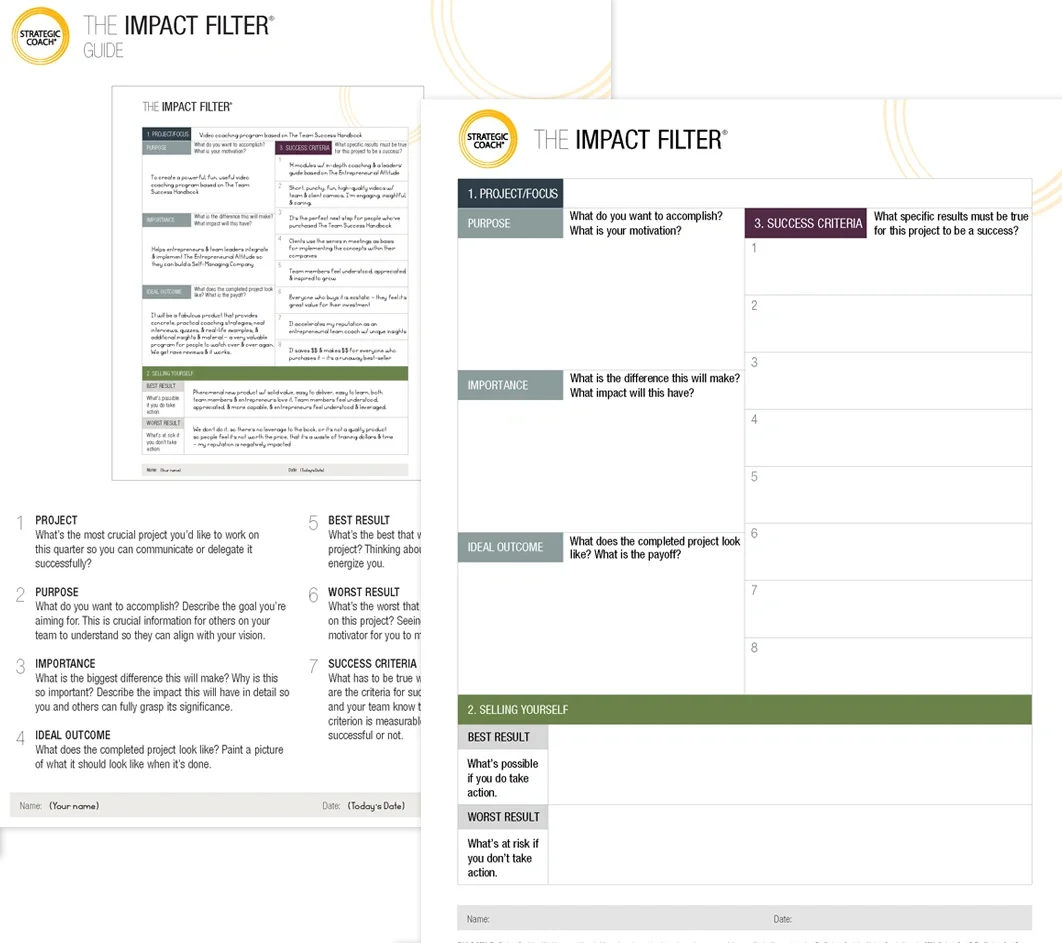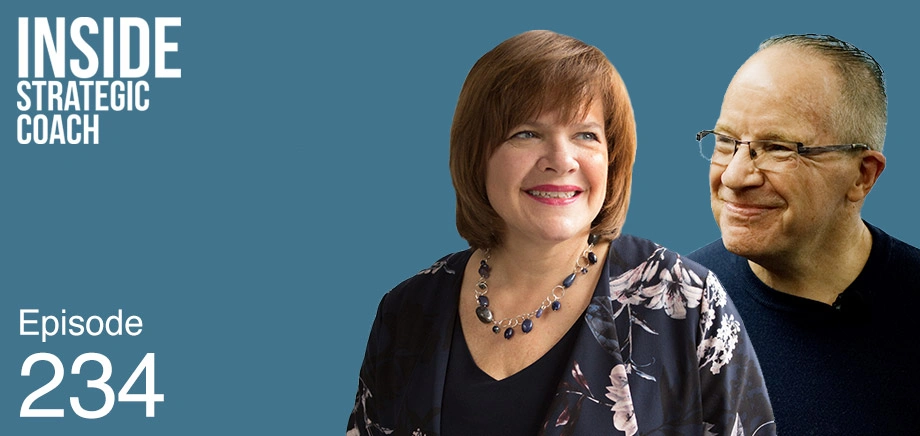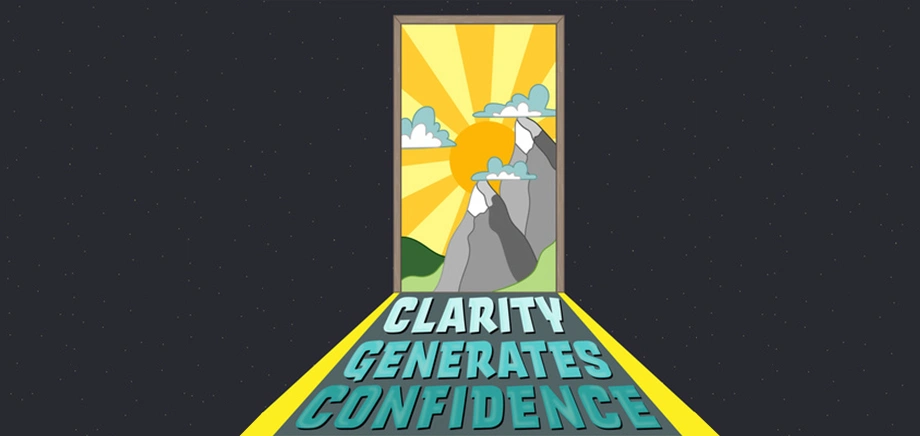The Surprising Reason Great Salespeople Fail At Hiring
July 08, 2025
Hosted By
 Dan Sullivan
Dan Sullivan
 Shannon Waller
Shannon Waller
Just because someone excels in their role doesn’t mean they should interview new hires—especially if they’re a salesperson. In this episode, Dan Sullivan and Shannon Waller reveal why great salespeople often make the worst hiring decisions, how to spot the right evaluators for your team, and the mindset shift that separates a persuasive seller from a discerning buyer.
Here’s some of what you’ll learn in this episode:
- The role of a job seeker in an interview.
- The role that an interviewer should be playing.
- Why Dan isn’t involved in the hiring process at Strategic Coach®.
- A secret ingredient in the Strategic Coach hiring process.
- The powerful question you should ask every prospective customer and team member.
Show Notes:
Salespeople shouldn’t conduct interviews because they’ll treat every interaction like a sale—focused on overcoming objections rather than evaluating fit.
Great salespeople are wired to close deals, which means they’ll prioritize getting a "yes" over finding the right candidate.
A sales-driven interviewer risks hiring the wrong person simply because they couldn’t resist "winning" the interaction.
As the person doing the hiring, you’re the buyer, not the seller.
It’s the job of the applicant to convince you they’re the right fit.
It’s not the interviewer’s job to get the applicant excited about the position.
Your hiring team should be dispassionate evaluators—think poker players, not persuaders.
The best hires are those who sell you on their ability to contribute to your company’s future.
Confidence in hiring comes from being decisive, not from convincing someone to join.
Trust your instincts—if a candidate feels off early on, that feeling rarely improves over time.
Resources:
Free Zone Frontier by Dan Sullivan
How To Improve Business By Asking Good Questions
Always Be The Buyer by Dan Sullivan
Your Business Is A Theater Production: Your Back Stage Shouldn’t Show On The Front Stage
Episode Transcript
Shannon Waller: Hi, Shannon Waller here, and welcome to Inside Strategic Coach with Dan Sullivan. Dan, you said something interesting the other day, which I thought would make a great podcast. You said salespeople shouldn't hire because they treat each interview like a sale, and they just want to overcome objections. which totally echoes with my own experience. In fact, I'm allowed to come in at the very, very, very end, but not the beginning for exactly this reason. But I think a lot of owners, visionaries, sales leaders even, do the hiring, but if they're really good salespeople, it's a danger. Can you tell us why that is the case?
Dan Sullivan: Yeah, I mean, first of all, I think if you take a look at the nature of the really great salespeople, it doesn't matter what the situation is. I mean, sales are sales. You're getting another person to say yes.
Shannon Waller: Right, good point.
Dan Sullivan: But the problem with it in hiring situations is that you're getting the wrong people to say, yes, I want the job. It's doing you good. So the person who's really good at hiring and that thing is not selling. The other person is doing the selling. In other words, the applicant is doing the selling. And you're saying I'm a skeptical buyer here. Yes, I'm a skeptical buyer. I mean, the other person, the person who's the applicant for the job, is the person who's supposed to be selling. Okay. And you're questioning whether accepting them, you know, as a new hire, you know, you're bringing them on into your organization. I don't care what the position is, the role that they're going to take in everything, it's their job to actually check off all of your boxes, whether this is the right thing.
You're not the person who's supposed to get them to be excited about the situation. They're the person who's supposed to get you excited about it. So therefore, a salesperson, you know, is going to try to just hire the person because then it's a sale, you know, and you feel good about the sale. I got the person to say yes. And I said, you are totally the wrong person to be in that position and you're not performing the right role here. Your person is to have the other person make all the arguments, you know, create the vision of what they could do for you. But I noticed our entrepreneurs and Strategic Coach, with rare exceptions, are really great salespeople. They should not be the person who's selling to bring new people into their company.
Shannon Waller: Well, and I have my own examples of this. One time I was in an interview, it was someone that one of our team members had recommended. So they kind of got an automatic interview, but the person showed up inappropriately dressed, which should have been the first giant red flag. And I was like talking about the company and how fabulous it was and the opportunity of the job. And there's a knock on the door and Tami Coville, who's Director of Operations, she goes, Shannon, I need you immediately. I'm like, she goes, no, no, I need you right now. I'm like, I'm so sorry, I'll be back, whatever. I come out and she goes, we are not hiring that person. I was like, oh, okay. Because I was in the middle of a sale as far as I was concerned, which was hysterical.
But yeah, exactly. I wasn't being the buyer, right? I was being the seller. And I'm a damn good one. So it's like, I was convincing. Would not have ended well. But yeah, fortunately, our much more dispassionate people who do all the hiring are much savvier about that. Dan, you've talked about how our hiring team works, and they are dispassionate.
Dan Sullivan: They're poker players.
Shannon Waller: They're poker players.
Dan Sullivan: There's no tells, you know, they just sit there and, you know, I'll meet a person who, you know, is 99% approved and then, you know, we'll have a conversation and I have a right to say no, you know. I'm not the person to say yes in the entire hiring process in Strategic Coach, you know, whether it's Associate Coaches, we're bringing on new people as Associate Coaches, you know, and really, it's not a frequent experience for me, because I have a really well developed team over many, many years, and they'll do hiring, and they'll hire people, but I'm not the person to do the hiring here. I didn't hire you when you came into the organization.
Shannon Waller: We did have a dinner though, you and Babs and me and Susan.
Dan Sullivan: Yeah, we had a dinner, but I don't remember being the major player in this situation. And the whole point is to know your role in your organization. And my role is to create a bigger future for the company with new thinking tools, okay? And even then, when I create a new thinking tool and I go into one of our workshops with very high-level entrepreneurs, I say, I've got a new way of thinking about something and I want to see if this works for you. Okay, then I'll walk through it. But I'm using their experience, you know, as the raw material and say, if you thought about a recent tool yesterday, I did it. And I've said, you know, I think that probably you are where you are today because of guesses and bets that you've made in your past that you had a payoff from and you've built your success as an entrepreneur up to this thing because you've had a lot of really good guesses and a lot of good bets and you had really good payoffs.
So let's just examine five of your best guesses and payoffs. I'm not selling the person, I'm getting them to look at their experience and to sell themselves on their past that they've had a better past than they thought they did. Because if they can see that they've been actually more successful than they thought they were, their confidence level is for selling themselves on the future. But I've been cut off from the hiring process for a long time.
Shannon Waller: And I think some people might be fascinated to know that you do not choose the coaches. Like you're not part at all of the process for choosing coaches.
Dan Sullivan: I'm not part of any of the process of selecting who the new coaches are and how they're doing as a coach. I'm not part of that process at all. But they all have to be in my workshop so that they can see how I'm coaching the tools. So it's really interesting because I'm persuasive, you know, I have real persuasive abilities, but it's not appropriate for me to be using those persuasive abilities in a hiring situation.
Shannon Waller: I love that you just said that, Dan. It's not appropriate because it's incredibly important. I love the discernment that you're adding here that you use your persuasive capabilities or any areas of Unique Ability really on your right audience. And in this case, new hires, new coaches, the rest of it, that's not your audience. Your audience now is Free Zone and 10x during the calls, our clients. So that's excellent focus on exactly how best to use your capabilities. I like that a lot. Going back to the people who do do the hiring and who are very poker face. Can you talk about the paperclip, Dan? Because I think that's just entertaining.
Dan Sullivan: Well, there's always two. It's not one person who does the hiring. There's always two. I don't think I'm giving away trade secrets here. You know, I'm not. But the two of them have an agreement that they have a paperclip that's, I don't know, they may use other means today because, again, I'm years away from that particular experience. But if one of them feels that this person isn't appropriate, they pick up the paperclip and they'll just have the paperclip in their hand. And that's a signal to the other one that this person is not going to be hired.
Shannon Waller: I love it.
Dan Sullivan: Well, you know, casually, they just do it casually, you know. So if anyone's applying for a position at Strategic Coach, watch the paper clip.
Shannon Waller: That is so fun.
Dan Sullivan: I'm sure they have many other methods, such as the one method.
Shannon Waller: Exactly. Oh, my gosh. I love it. I think it's key that people really do know their lane, know exactly who your audience is, and then have someone else who actually can be dispassionate and not the salespeople person, you know, in terms of filling the role. But Dan, I want to touch more on being the buyer, because I think that is such great action for people to take and advice to remember if you're in a situation where you're very tempted to sell when frankly someone else needs to be selling you. Let's talk about being the buyer. Why is that such an important mindset to have in these situations?
Dan Sullivan: As an entrepreneur, you know, when you first start your entrepreneurial company, there's selling that you have to do, you know, because you have to get your first customers, you have to get your first clients, and you've got to get them engaged enough that they'll write you a check. Check in a conceptual sense, because checks are done electronically now. So a lot of young people, you know, if they say check, you know, I don't know what a check is, but there has to be a payment. There has to be a payment to be done. So you have to sell. And what I discovered very early in the game was a way of getting them to sell themselves.
So I just have a process that's at the very core of what we do in Strategic Coach. We take the person who might be a customer, might be a client, and you take them into the future and you ask them a question. I'll give you an example that you say, if we were here three years from today, and it's today's date, but three years into the future. And you say, if we were having this discussion in the future, looking backwards to today, what has to have happened for you to feel happy with your progress? And one of two things happens. The person doesn't answer the question, or they answer the question. They don't answer the question, then there's no possibility. They say, well, I don't know you well enough. I don't trust you well enough that I would give you that information.
And my response to that is saying, well, see, I don't know if I can be useful to you or not, and I don't know what you have planned for your future, and the only way I can know if I'm going to be useful to you or not is to know what you're trying to achieve in your future, what's going to make you happy with your progress. You're saying to me that you don't want to give me that information, so without that information, there's nothing I can do for you, and thanks for your time, but we shouldn't waste any more time, and I end the conversation. The interesting thing is that they didn't reject me. I rejected them.
Shannon Waller: Right.
Dan Sullivan: Okay. And so I'm the buyer that I'm not going to provide my capabilities. I'm not going to provide my services to anyone who won't give me the information about what they're trying to achieve in their future. And they can feel right away that they thought that they were the rejecter, but I turned out to be the rejecter. Now, some people who learn our way of selling this way, our own salespeople, and that, they'll give the person a second chance, but I won't give the person a second chance. And they'll say, wait a minute, can we start over? And I said, nope, you had a chance. And I said, the reason why you wouldn't answer that question is because you don't trust me, and I can't work with people who don't trust me. And you will never trust me because you're not a trusting person. So I work with trusting people, okay?
Now, I just want to make sure we don't get too far off track here because it's going back to the opening question that you asked about hiring. And the whole point here is that when I take on a new client, I'm actually hiring them to play a role in our program. Okay. And because they don't trust me, they can't be a member of my program, but I'm the buyer. I'm the buyer and this person is not qualified to be in the Strategic Coach because they don't trust me. There's nothing I can do for this person.
Shannon Waller: It's so interesting, Dan. It's a powerful question. It's one of my favorite, and I've trained many sales teams on this, is that it puts you in a state of confidence when you are the one making the decision. And it's so important because when you don't have a standard or a quality like this, that it becomes very transactional. You keep giving and giving and giving and giving, kind of assuming that there'll be some reciprocity, but usually there isn't. And people who are not willing to be so decisive for our last conversation end up being strung along for a long time. They give and give and give and give, and the other person's, well, I'm not sure.
Dan Sullivan: Well, because they think they're the seller.
Shannon Waller: Exactly. And you get suckered into an incredible waste of time and energy and emotional investment into this person when really there's no possibility of there being a sale.
Dan Sullivan: We don't have a future. There's no future that's possible. And I had one person who called me three times after I rejected him, and he says, can't we? So I said, no, there's no possibility. It's very, very interesting. Humans size each other up in a very, very short period of time. You either like the person or you don't like the person. And what that says when the person says, well, I don't know you well enough to give you that information, that's not a momentary feeling. That person is never going to give me the information. There's no possibility for the rest of his life or her life and my life that we're ever going to have a relationship. And it's good to know that right up front.
Shannon Waller: I think that's key. The other thing that occurs to me, Dan, is that if they said no to be manipulative, right, to exert control, they're already, you know, in a control situation. And that's not someone you want to be in business with.
Dan Sullivan: I'm not in that line of business of dealing with people like that. But on the other hand, if they answer the question that I ask them a lot of other questions, you know, you said this, you said this, they still haven't paid me for anything, but I'm creating value for them because no one has asked them a question like this before, and I'm doing good. And even if the person doesn't come into the Strategic Coach, that is not wasted time on my part, and it's certainly not wasted time on their part. They're gonna get an incredible amount of value in a half hour, an hour conversation where I'm talking to you, but there's no wasted time. I just can't stand wasted time.
Shannon Waller: I love that.
Dan Sullivan: Most sales situations are a complete wasted time because the seller actually doesn't know that they're the buyer. You're buying the possibility that this person and you are going to work together and create something that's bigger than both of you, and they've just rejected that opportunity.
Shannon Waller: Well, it's interesting, Dan, because even if you go through the questions, you may still determine that they're not a right fit. Just because they will answer it doesn't mean that their answers are still necessarily a right fit for the value creation that you want to provide.
Dan Sullivan: Yeah. You know, if someone says to me, they say, well, I'm kind of reaching the end of my career and I just want to spend the next three years getting everything set. So I said, well, that's really great. And I'll help you think that through. But that means that you're coming to the end of something and I'm in the business of starting new things. Okay.
Shannon Waller: Right.
Dan Sullivan: But there's no animosity. There's no negativity to the discussion. That's a great answer. And, you know, maybe there's something they say, well, I know someone who can help you think this through and everything like that. But my job is to make sure that all the time that I spend day in and day out is useful time working with good people. And they're not bad people in a moral way or an ethical way. There's just no fit here. There's no ballgame. You know, there's no game scheduled today. Nothing's going to happen here. But I think it fails people who have wasted 90% of their lifetime talking to people they shouldn't be talking to.
Shannon Waller: Agreed. Agreed. I would say hiring people, too. And the interesting thing is, well, first of all, you leave people better than how you found them when you ask that particular question, which I just love. You've added some grace to their life and to the world. So I think that's cool. It's not wasted time. But then the other thing is we ask that question in interviews for hiring team members, because we also want people on the team with a bigger future who want to grow, not necessarily in terms of a title or a position, but in terms of capabilities. They're like, oh, I want to be able to do this. I want to be able to contribute that. I want to be able to learn. That is kind of a right fit answer for us.
And then we can decide if someone says, oh, I'm just looking for a job 9-5. We're like, yeah, no. I want something really predictable that's never going to change. And we're like, yeah, Coach is not the right home for you. Like we can be the buyer and decide based on someone's answer. So it works front or back stage, which is really interesting.
Dan Sullivan: Yeah.
Shannon Waller: Dan, I love this. Salespeople should not hire an and this is exactly why, but I also love that you've given a strategy, a why it doesn't work, and then always be the buyer using what we call The R-Factor Question, which is a three-year question that you mentioned, and that it works with both clients and with team members that you're hiring back stage as well. So very good first picture. And again, I think what I'm leaving with is, you know, be very conscious and careful with whom you are using your persuasive capabilities.
Dan Sullivan: I used to be persuasive in talking about what I do and what our company does, but I found that they're not interested in that to begin with. They're interested in what they're going to do with their future. And now I've become what I would say a persuasive questioner. Yeah, which makes me feel better. First of all, I feel a lot better that I've asked questions that the person hasn't thought about before and they see some new things in their life. Whether they say no or yes of coming into the Program, I don't feel I've wasted time. If they answer the question and they discover something new, I feel I've spent my time well and that I've done good.
Shannon Waller: And you've made it about them, not about you.
Dan Sullivan: Yeah.
Shannon Waller: Yeah. Very cool. Thank you, Dan. This is as always interesting and enlightening.
Dan Sullivan: Thank you.
Related Content
The Impact Filter®
Dan Sullivan’s #1 Thinking Tool
Are you tired of feeling overwhelmed by your goals? The Impact Filter is a powerful planning tool that can help you find clarity and focus. It’s a thinking process that filters out everything except the impact you want to have, and it’s the same tool that Dan Sullivan uses in every meeting.







